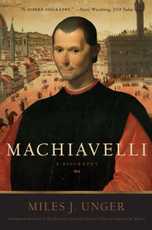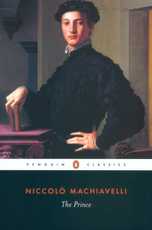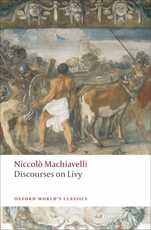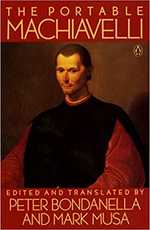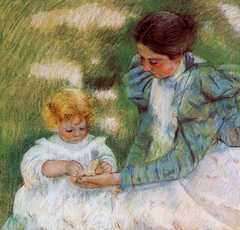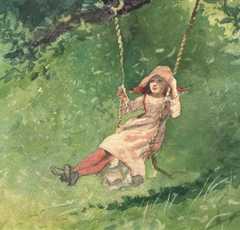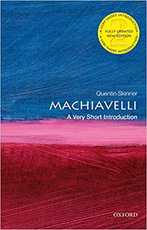

Machiavelli The Best 5 Books to Read
Niccolò Machiavelli was an Italian philosopher, historian, and writer who lived from 1469 to 1527. During his lifetime, Machiavelli served as a government official in the Republic of Florence, where he was responsible for diplomacy and military affairs.
Often associated with the concept of realpolitik — the pursuit of power through practical and pragmatic means, rather than through ideology or moral principles — Machiavelli’s ideas have been highly influential (and controversial) in political philosophy and beyond.
Machiavelli is perceived to be interested more in what it means to be an ‘effective’ rather than ‘good’ ruler, arguing that those in power should be willing to use any means necessary to maintain their rule, even if that means resorting to deceit, coercion, and violence.
This reading list consists of the best books on and by Machiavelli. After reading it, you’ll understand exactly why his political ideas remain so discussed — and whether his rather sinister reputation is deserved. Let’s dive in!
1. Machiavelli: A Very Short Introduction, by Quentin Skinner
Quentin Skinner’s Machiavelli: A Very Short Introduction is a fantastic place to start for anyone with a budding interest in Machiavelli.
Widely considered to be the best short introduction to Machiavelli, Skinner does an admirable job in providing an illuminating overview of Machiavelli’s life – which includes meetings with kings, the Pope, and the Holy Roman Emperor – as well as his most important ideas.
Skinner also provides helpful background to contextualize Machiavelli’s work, and makes clear why his influence continues to be so enduring. Coming in at an accessible 144 pages, this is a very nice entry point to Machiavelli.
2. Machiavelli: A Biography, by Miles Unger
If you’re seeking to dive a little deeper with your Machiavelli scholarship, look no further than Miles Unger’s Machiavelli: A Biography, first published in 2011.
Unger brings to life the tumultuous events that shaped Machiavelli as a thinker. He argues that, beyond the sinister caricature, the real Machiavelli was a highly compassionate and insightful writer who simply developed his controversial ideas in response to the corrupt and violent conditions he witnessed.
With its 424 pages packed full of insight, Machiavelli: A Biography is a brilliant accompaniment for those seeking a deeper understanding of Machiavelli’s thought.
In one concise email each Sunday, I break down a famous idea from philosophy. You get the distillation straight to your inbox:
💭 One short philosophical email each Sunday. Unsubscribe any time.
3. The Prince, by Niccolò Machiavelli
Turning from introductions to primary texts, where better to start than with the text that cemented Machiavelli’s name into world history?
Machiavelli’s The Prince concisely outlines the amoral pragmatism of the realpolitik so associated with his name, and shocked Europe on its publication in the 16th century. Writing with crisp and flowing prose, Machiavelli advises rulers on the ruthless tactics they must use to gain and maintain power.
A short but staggeringly influential work, Machiavelli’s The Prince is essential reading for any serious student of political philosophy.
4. Discourses on Livy, by Niccolò Machiavelli
While The Prince is Machiavelli’s most famous work, Discourses on Livy is just as important if you’re seeking a complete picture of his political philosophy.
In this sharp and enlightening work, originally published in 1531, Machiavelli compares the statecraft of the ancient Romans with that of his contemporaries. Ultimately arguing for a republican political system, Machiavelli discusses everything from what makes a healthy political body to the nature and use of conspiracies.
A brilliant guide to state building, Discourses on Livy belongs on the bookshelf of anyone interested in Machiavelli.
5. The Portable Machiavelli, by Niccolò Machiavelli
Though the two previous books are his best-known works today, Machiavelli wrote profusely over his lifetime, and his output included essays, histories, and even literary works.
The Portable Machiavelli is a Machiavellian anthology including the complete texts of The Prince, Belfagor, Castruccio Castracani, a play called The Mandrake, as well as an abridged version of Discourses on Livy, seven private letters, and selected passages from The Art of War and The History of Florence.
Helpful contextual introductions and notes are provided throughout by translators and editors Peter Bondanella and Mark Musa, making this a lovely addition for serious Machiavelli students.
Further reading
Are there any other books you think should be on this list? Let us know via email or drop us a message on Twitter or Instagram.
In the meantime, why not explore more of our reading lists on the best philosophy books:

View All Reading Lists
Essential Philosophy Books by Subject
About the Author

Get one mind-opening philosophical idea distilled to your inbox every Sunday (free)

From the Buddha to Nietzsche: join 15,000+ subscribers enjoying a nugget of profundity from the great philosophers every Sunday:
★★★★★ (50+ reviews for Philosophy Break). Unsubscribe any time.

Latest Breaks
Each philosophy break takes only a few minutes to read, and is crafted to expand your mind and spark your curiosity.
